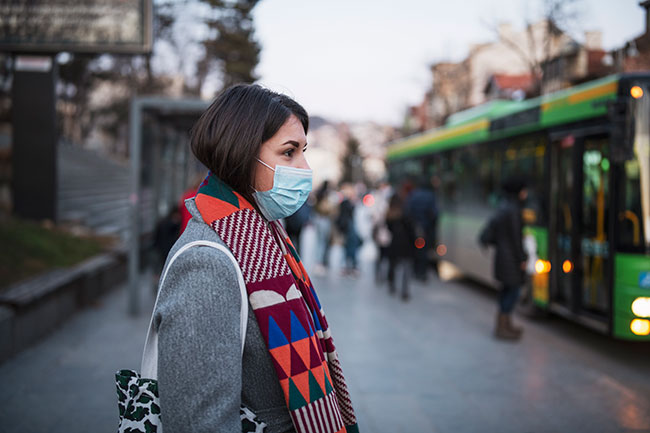
Editorial: Adjusting to our new normal
June 25, 2020
By
Kristina Urquhart
 Photo: ArtistGNDphotography/Getty Images
Photo: ArtistGNDphotography/Getty Images Last month, MA hosted a webinar on safety strategies for returning to work. Our guest speaker, Robert Vomiero of Ontario’s Workplace Safety & Prevention Services, shared enhanced measures that have been recommended for manufacturing workplaces – and stressed that as we focus on new protocols, we can’t forget to comply with pre-existing standards (if you missed the webinar, access the free recording here).
While the manufacturing sector was deemed essential and many producers did not close during the COVID-19 lockdowns, every operation has been affected by these additional safety regulations. This has resulted in staggered shifts, employees working from home when possible, distancing measures, temperature checks, etc.
This is our new normal – at least until mass immunization, which, by conservative estimates, is still at least a year away. And it’s likely that many of these new safety protocols won’t disappear once we’re vaccinated against the coronavirus. If anything, this pandemic has ensured that stricter hygiene practices are here to stay.
Companies are ramping up long-term production of PPE. A recent deal with the federal government and Quebec’s Medicom will see production of N95 masks continue until at least 2030.
Stories like this are good news for manufacturers, and for the Canadian supply chain. To read about how supply chains will use automation to become more resilient as a result of the crisis, read our June cover story.
It’s likely that many of these new safety protocols won’t disappear once we’re vaccinated against the coronavirus. If anything, this pandemic has ensured that stricter hygiene practices are here to stay.
This month’s issue is usually our wrap-up of Hannover Messe, where we bring you the latest trends in industrial automation for the coming year. The conference, of course, was cancelled until April 2021 – but in its absence, we have launched a new platform to talk about automation technologies.
It’s a podcast called Machine Language – and the first two episodes are already live at automationmag.com/podcasts. Every month, you’ll hear me interviewing industry experts about topics related to automation and machinery, including robotics, sensors, motion control, software, Industry 4.0, cybersecurity and networking, and artificial intelligence.
Our first episode features an interview with Shelley Fellows, chair of Automate Canada, and Mike Bilton, chair of the Canadian Association of Mold Makers. The sister associations have been working together to assess the impacts of COVID-19 on the mold, tool/die, and industrial automation sectors through member surveys.
In the episode, Fellows and Bilton discuss some of the major concerns brought forth by manufacturers, and some unexpected positive impacts of the coronavirus crisis. They also highlight health and safety best practices, and dig in to how Industry 4.0 technologies will help manufacturers become better equipped to deal with the next crisis.
“The wise companies are looking at this as an opportunity to invest in some new technologies,” said Fellows during our chat. “[It’ll be] interesting to see what will happen when they sustain it – for those who are going to sustain it – and make it part of their business diversification strategy.”
Have an idea for a Machine Language podcast episode? Email me. Happy listening!
This article originally appeared in the June 2020 issue of Manufacturing AUTOMATION.
Advertisement
- WIN Enterprises releases IoT gateway for factory-to-cloud communications
- Students in Windsor, Ont. receive annual bursaries from FIRST Robotics